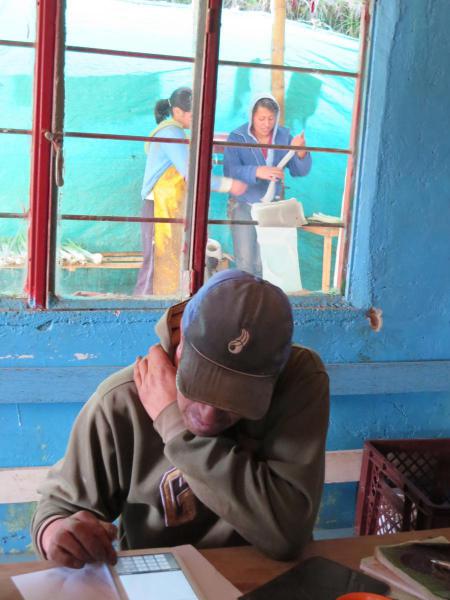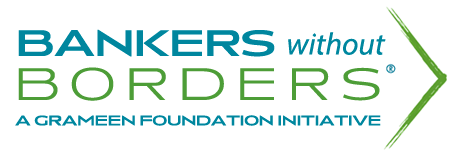I’ve been silent for a while. But it’s not because I fell into a tech hole while helping build a mobile sourcing tool for one of our partners, a cooperative that receives product orders from large supermarkets and disperses them among farmer associations and their farmers. Well, I did fall into a tech hole, but I was able to claw my way back out and into territory I was more familiar with: planning trainings, program management, logistics management, and field visits, all of which kept me very busy.
Over the last two months, I’ve traveled to visit our partner twice in Pasto, a town in the south of Colombia close to the border with Ecuador. On the first visit, we did a soft-launch of our mobile sourcing (m-sourcing) tool. It was an exciting visit for me. First, we were launching the tool that I had helped co-develop. The tool is used for every step in the ordering, sourcing, delivering, and purchasing of smallholder farmers’ crops. The m-sourcing tool is systematizing and standardizing the way our partner works, while also automatically developing reports on product assignments and deliveries.

I was also in charge of planning and executing the training, including planning the activities, creating the training tools we would use, and managing the logistics. If something went wrong, it was on me. Luckily, I had the help of a great coworker who presented all of the tech-specific information while I shared information about the project, walked the participants through each mobile purchasing tool, and facilitated the conversation about how the tool could be improved. It was a fast-paced, tongue-twisting (the training was, quite obviously, in Spanish), stressful, and exciting couple of days. One of my favorite things about the training was when my coworker and I stopped talking and sat back as each mobile user walked the other participants through the specific part of the mobile tool they would manage. It was overwhelmingly rewarding to watch as users excitedly walked their colleagues through a system I had helped build. We left that training happy, but with a list of changes we needed to make to the tool.
And last week, I was hitting Colombia’s dusty country roads again, traveling by beat-up taxi, bus, moto (my personal favorite), and the organization’s semi-truck to visit farmer associations’ warehouses to officially launch the updated m-sourcing tool. As exciting as the first training had been, getting into the field and visiting farmers where they work and seeing the tool in action, was amazing. Each association leader enthusiastically ushered me into their association warehouse as we walked through the use of the mobile tool while farmers delivered their produce. One farmer, with tears in her eyes, thanked me for taking the time to visit them and for introducing the tool. Meanwhile, after every order was assigned, or a delivery was made, the guy accompanying me on behalf of our partner was calling our partner’s offices to see if the order had made it to the reports we developed. This system of automatic, real-time reports is expected to cut 35 hours of work a week in our partner’s office, while also facilitating faster farmer payments.
In between each visit, I laughed hysterically as our taxi, lost in the middle of the country on dirt roads that would suddenly dead-end, struggled to make it up a hill, smiled broadly while weaving up the side of a mountain on a moto, and engaged in enthusiastic conversation with the semi-truck driver as our truck swung around roads just barely clinging to the side of mountains. It was a series of days that every development worker hopes for when they set out on their next stint abroad. I left Pasto last week full to the brim with beautiful views, great conversations, mountain air, and excitement about the project, thinking: how did I get so lucky?
Laura Burns is a CKW Operations Fellow, based in Colombia. Check back for more about Laura's experiences in the field!

